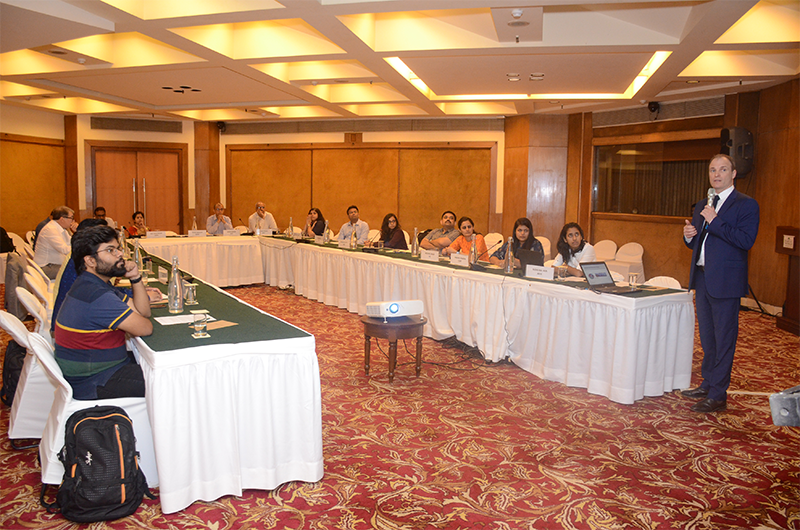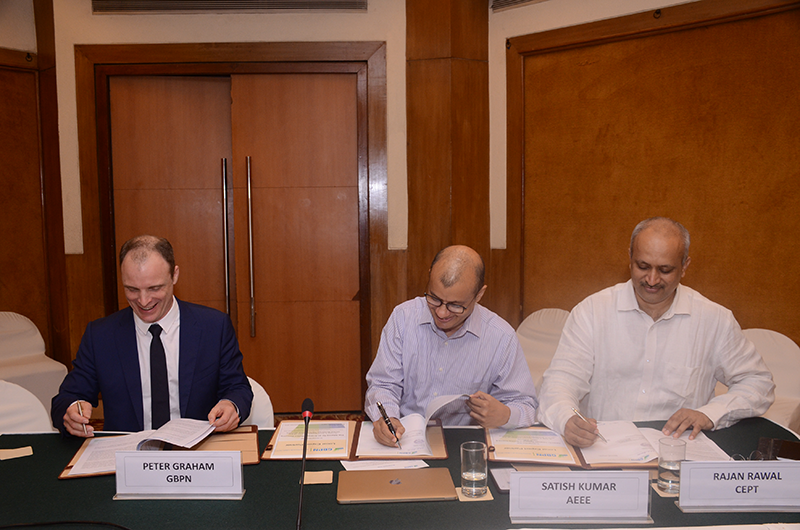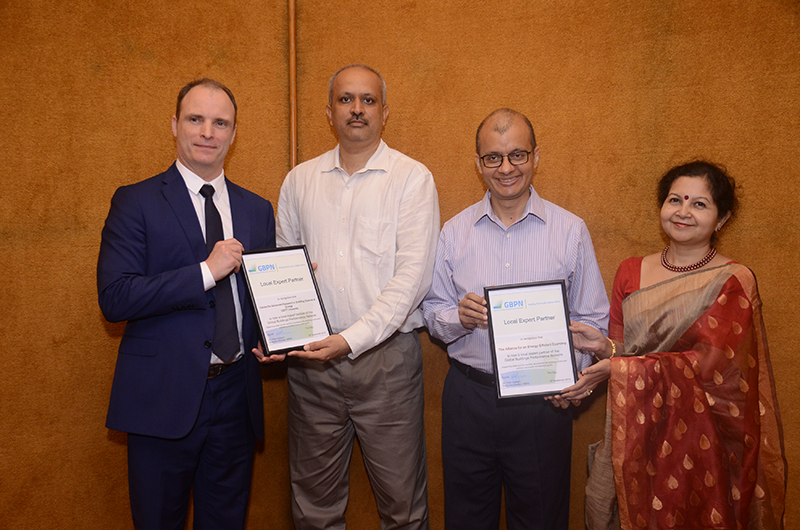


With the intent of spotlighting enhanced cooperation in decarbonizing India’s residential building sector, Global Buildings Performance Network (GBPN), Alliance for an Energy Efficient Economy (AEEE) and CEPT Research & Development Foundation (CEPT) joined forces today
September 12, New Delhi – Today, a three-way MoU titled “A policy strategy for decarbonizing the residential building sector in India” has been signed between the Global Building Performance Network (GBPN), Alliance for an Energy Efficient Economy (AEEE) and CEPT Research and Development Foundation (CEPT). The MoU intends to formalize enhanced co-operation in supporting India’s sustainable building policy development, adoption and implementation in India.
Per the MoU, GBPN, AEEE and CEPT have agreed, through joint cooperation, to undertake more substantial efforts in helping Government of India in its synergized work with private sector stakeholders to adopt energy efficiency policies for building making India future ready.
Mission: To help governments and the private sector work together to adopt building energy policies that decarbonise the buildings sector and achieve sustainable development goals.
Vision: By 2030 the buildings sector will be largely decarbonised because of the mainstream adoption ambitious building energy policies in the world ‘ s most rapidly urbanising regions.
The specific areas of cooperation covered under this MOU include:
- Achieving Sustainable Buildings Policy Adoption in India
- Appropriate Implementation of these Policies in India
- Policy Best Practice and knowledge exchange and international communications
- Responding to requests for more specific insight and international comparison on tools or experience in specific policy issues such as policy design, compliance, monitoring and reporting, financing etc. in India.
- Collaboration in further fundraising to developing and maintaining the GBPN Local Expert Partnership in India.
The long-term goals of the project include:
- Increased adoption of Energy Conservation Building Code – Residential (ECBC-R) also known as ECO-Niwas Samhita in India through a replicable implementation framework and activities, with a focus on the affordable housing sector.
- Focus on scoping study to develop a policy implementation pipeline that leads regional jurisdictions through policy planning, adoption and implementation by 2020.
- Building an administrative capacity through an action learning approach that provides the necessary MRV of energy and emissions baseline for affordable housing units.
“Through ECBC-R adoption, Indian state governments can meet the Nationally Determined Contribution of reducing 33-35% of GHG emission intensity, and the ambitious goals set forth in the India Cooling Action Plan,” said Dr. Satish Kumar, President & Executive Director, Alliance for an Energy Efficient Economy, at the MoU signing. He further added, “The signing of this MoU exemplifies AEEE’s commitment to equip the future generation with sustainable and comfortable housing and will provide a platform for further partnerships between – private sector, public sector, research and educational institutions.
The Global Buildings Performance Network will support the project with a partnership grant and collaborate on training, capacity building, research and global best practice exchange.
This partnership is in line with the India’s 2030 framework of addressing clean energy & climate action goals for the government of India which include at least 6 of the 17 transformational areas, namely, good health & well-being, affordable & clean energy, sustainable city & communities, sustainable consumption & production, climate action and life on land in addition to broad spectrum global societal good as iterated in the Kigali Amendment (Montreal Protocol) and the Paris Agreement. The MoU also hopes to achieve environment benefits like health and well-being and basic Thermal Comfort for All.
“Buildings are first and most important component to achieve goal of Thermal Comfort for All,” said Professor Rajan Rawal of CEPT. He emphasized the role of research and academic organizations in assisting national government’s set target and help achieve it. He further added, “Codes and standards, are one of the effective instruments in safe-guarding human interests in the context of future environmental challenges. CEPT is delighted to bring scientific rigour into policy implementation.”
At the formal signing ceremony Mr. Peter Graham, Executive Director, GBPN remarked, “India has one of the lowest access to cooling (7% to 9%) across the world but tropical and warming climate, increasing population, rising aspirations and urbanization will drive increase in cooling demand. Growth in the demand for cooling will be dramatic, particularly in urban areas, due to the underlying need for a solution to the problem of rising temperatures, population growth and rapid pace of urbanization. With this MoU GBPN is helping address one of India’s most pressing environmental challenges, and I am honoured to direct this mission-forward collaborating with AEEE and CEPT.”
The MoU signing event was preceded by a roundtable discussion on government perspective on affordable housing and implementation of ECBC-R followed by a second scene-setting session discussing GBPN Project Activities and Objectives. The roundtable was attended by a robust representation of stakeholders including International Finance Corporation (IFC), Bureau of Energy Efficiency (BEE), World Resource Institute (WRI), Swiss Agency for Development and Cooperation (SDC), National Institute of Urban Affairs (NIUA),The Deutsche Gesellschaft für Internationale Zusammenarbeit GmbH or GIZ.
Sustained intervention to support sustainable building policy development, adoption and implementation in India with an emphasis on supporting local and state government entities and SMEs will remain in focus throughout this project.